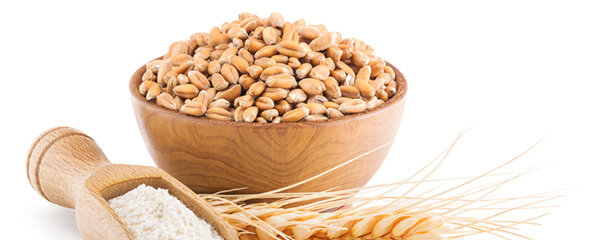Grains the new go-to for gut health
Grains may have earned a bad reputation with the health-conscious, but a new study shows that – along with garlic, onion and legumes – whole grain wheat and rye may be beneficial in altering the risk of chronic diseases such as diabetes.
A team of researchers at Bond University, in conjunction with the University of Queensland and King’s College London, studied numerous types of dietary fibre to see how they manipulated gut health and, therefore, may impact the risk of a number of serious diseases.
A panel of nine academics collected and analysed more than 60 research studies encompassing more than 2,000 healthy adults and combined the results to investigate the effect of dietary fibres on gut health.
Bond University Master of Nutrition and Dietetics graduate and PhD Candidate, Daniel So, said the study showed not all fibres were ‘created equal’ with some having significantly greater impact on the gut microbiome.
“Issues with gut health and gut bacteria, in particular, are becoming increasingly recognised as factors of chronic diseases, including inflammatory bowel disease, obesity or diabetes,” he said.
“The results, which discovered different types of dietary fibre play a major role in the microbiome, will help us to minimise the risk of developing these conditions.”
Mr So said the research revealed that although many foods fell under the fibre umbrella, different fibres affected the gut in various ways.
“Before the study, we knew the dietary fibre component of many plants was generally good for gut health, but their effect on the gut bacteria wasn’t as straightforward,” he said.
“We found not all dietary fibres were the same, and these different fibres affected the gut bacteria in alternative ways.
“Certain types of dietary fibre actually stimulate positive bacteria – these are fructans and galacto-oligosaccharides (GOS), which are found in foods such as garlic, grains, onions and legumes.
“Consuming these fibres leads to benefits including short chain fatty acid (SCFA) generation – which keeps the colon healthy – and also helps to boost the immune system.”
Faculty of Health Sciences and Medicine Associate Professor, Katrina Campbell, said the study was a step in the right direction to understanding the impact and importance of fibre on gut health.
“These findings are incredibly beneficial, however further research is needed to determine the role of the entire diet and dietary patterns,” Dr Campbell said.
“We are going to enter the next phase of research which will investigate the effect different cuisines have on the gut and the role of gut health in maintaining health and preventing disease.
“I’m incredibly proud of the hard work Daniel and the team have put into this study and look forward to seeing where additional findings will lead us.”
(Source: Bond University)
Dates
Tags
Created by:

 Login
Login














